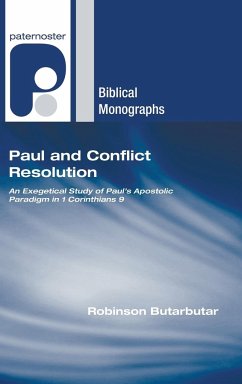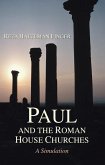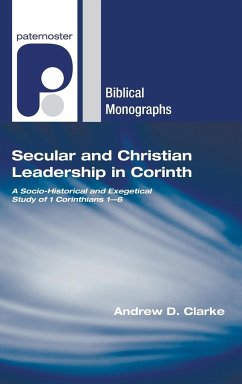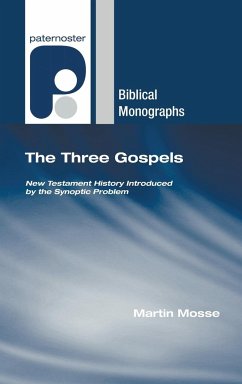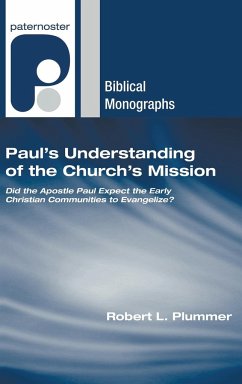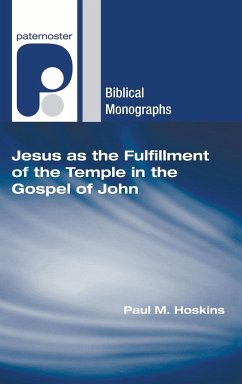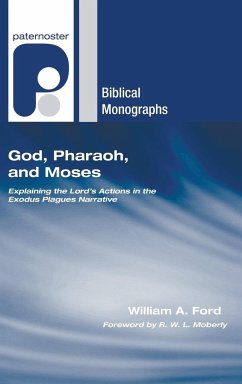This book is a literary and historical exegesis of Paul's apostolic paradigm in 1 Corinthians 9. The author argues that chapter 9 is part and parcel of Paul's unified arguments of 1 Corinthians 8-10, which are written to mediate in a dispute over food offered to idols. The questions of how the dispute emerged, how Paul arranges his arguments in the three chapters, and what role 1 Corinthians 9 has in the overall discourse are addressed carefully in the book. Moreover, the question of why Paul and his coworkers did not receive financial support from his audience, which was contrary to the practice of the other missionaries and the normal workforce of the time, and of why he uses such a practice as an example to be imitated by those insisting on their right to eat food offered to idols, are dealt with judiciously. Based on his exegesis of 1 Corinthians 9, the author furthermore attempts to see the relevance of 1 Corinthians 9 for dispute resolution today, taking the conflict within his own church as an example. ""The author does two things very ably in this stimulating book: reconstructing the issues confronting Paul in 1 Corinthians 9 and recontextualising them for the church in Indonesia."" --Kim Huat, Trinity Theological College, Singapore ""This volume presents a convincing and well-researched exegesis of 1 Corinthians, especially of chapter 9, and engages constructively with a range of scholarly literature on this chapter. The author successfully applies this exegesis to contextual issues that have practical relevance today. In particular he examines Paul's pastoral strategy for replacing confrontation by patient argument that shows respect for both sides, and seeks to reconcile them with pastoral sensitivity by entering into the world of each party. I entirely agree with the author that chapter 9 must be regarded as an integral part of chapters 8-10 and indeed of the argument of the whole epistle. I warmly recommend this volume as a useful contribution to the study of 1 Corinthians and its relevance to important issues today."" --Anthony C. Thiselton, University of Nottingham and University College, Chester ""Robinson Butarbutar has written a very thorough study of 1 Corinthians 9 in its historical and literary context. After a comprehensive survey of previous scholarship he makes an original proposal concerning the interpretive context of this important chapter. On this basis he undertakes detailed exegesis, from which he progresses to a consideration of some implications for the understanding of Paul's apostolic ministry. He concludes with a case study of the 1990s leadership crisis in the largest Christian denomination in Southeast Asia (HKBP), showing the relevance of 1 Corinthians 9 to resolving disputes both past and present. Both students and scholars will welcome this exegetical and contextual study."" --David L. Baker, Tyndale House, Cambridge Born in Indonesia in 1961, Robinson Butarbutar obtained his BD, MA, and DTh in 1987, 1990, and 1999, respectively. Having served as a local church minister and lecturer, he now serves as Asia Regional Coordinator of the United Evangelical Mission, a communion of churches in the three continents of Africa, Asia, and Europe (Germany).
Hinweis: Dieser Artikel kann nur an eine deutsche Lieferadresse ausgeliefert werden.
Hinweis: Dieser Artikel kann nur an eine deutsche Lieferadresse ausgeliefert werden.

